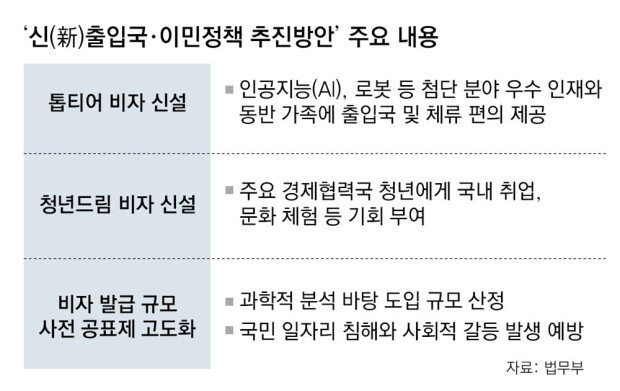Recruiting foreign talents with higher degrees in semiconductors and AI
Recruiting foreign talents with higher degrees in semiconductors and AI
Posted September. 28, 2024 08:22,
Updated September. 28, 2024 08:22

The government has announced plans to provide up to 500 million won in housing loans to foreign talents working in cutting-edge science and technology fields by 2030, while supporting them in bringing their parents and housekeepers to live in Korea. To foster domestic science and engineering talents, the government will expand support for scholarships, overseas training, and research institute recruitment throughout the entire career lifecycle.
On Friday, a talent development strategy meeting, chaired by Prime Minister Han Duck-soo and attended by the Ministry of Trade, Industry and Energy and the Ministry of Education, was held at Seoul National University. During the meeting, the newly established 'K-Tech Pass Support Program' was announced. Prime Minister Han emphasized the importance of securing technology and talent in determining the outcome of competition in cutting-edge industries.
The government will offer special visas for foreign talents. Recipients of the 'scientific talents' visa will be able to stay in Korea for up to five years after an initial one-year entry period, with the option to obtain a resident visa (F-2), allowing them to change jobs freely. The review process for these special visas will be expedited to around two weeks. Additionally, children of foreign talents will be able to enroll in domestic international schools outside of the regular quota. “Korea plans to reduce earned income tax by 50% for 10 years and to attract 1,000 top overseas talents by 2030,” said an official from the Ministry of Trade, Industry and Energy.
The government is specifically targeting foreign talents with master’s and doctoral degrees from top-tier engineering universities and those at the senior engineer level or higher. To identify these individuals, the Korea Institute for Advancement of Technology will use an AI system to analyze papers, patents, and global news to track potential recruits in real time.
The government will also significantly expand global training opportunities for domestic science and engineering talents, increasing support from 1,496 individuals this year to 4,000 by 2030, with a budget of 300 billion won. Additionally, the number of 'postdoctoral researcher' positions at KAIST, other major science and technology institutes, and university-affiliated research centers will increase by at least 2,900 over the next 10 years.
고도예 기자 yea@donga.com · 세종=김도형기자 dodo@donga.com
Headline News
- Joint investigation headquarters asks Yoon to appear at the investigation office
- KDIC colonel: Cable ties and hoods to control NEC staff were prepared
- Results of real estate development diverged by accessibility to Gangnam
- New budget proposal reflecting Trump’s demand rejected
- Son Heung-min scores winning corner kick







